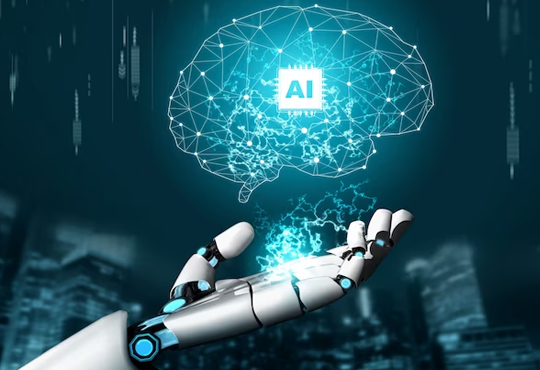Driving Needed Innovation in Consulting Business Leveraging Artificial Intelligence
Megha Jain, Content Writer | Friday, 31 March 2023, 10:07 IST
 Artificial intelligence (AI) has brought disruptive changes for enterprises all over the world. As these new technologies mature, many businesses are considering incorporating AI or, at the very least, automation into their processes. According to a Narrative Science report, the number of firms employing AI nearly doubled in one year, rising from 38 to 61 percent. A quarter of these businesses use AI for predictive analytics, while 22% use it for machine learning.
Artificial intelligence (AI) has brought disruptive changes for enterprises all over the world. As these new technologies mature, many businesses are considering incorporating AI or, at the very least, automation into their processes. According to a Narrative Science report, the number of firms employing AI nearly doubled in one year, rising from 38 to 61 percent. A quarter of these businesses use AI for predictive analytics, while 22% use it for machine learning.
While deciding whether to use AI or automation technologies, it's critical to understand the distinction between the two. This is not an easy undertaking because AI is sometimes confused with automation because AI frequently involves an element of automation and vice versa. As a result, it can be difficult for the average layperson to distinguish between these technologies. Machine learning is an algorithm that enables machines to learn depending on data, i.e. to improve algorithms using artificial intelligence.
While AI and automation have had a tremendous impact on certain industries, most notably manufacturing and customer service, they have also had an undeniable impact on consulting businesses. In general, the implications of these new technologies on consulting businesses are good, and if properly utilized, AI and automation have the potential to greatly improve how these organizations work as well as the services they give to clients. At the same time, people who implement AI solutions have to know our the possible bias of AI and potential to be hacked and exploited, as explained in this blog post.
AI technology is capable of processing, handling, and analyzing huge amounts of data significantly more rapidly and quickly. As a result, it can deliver more precise insights into a variety of company domains such as sales, operations, supply chain, and others. Such information can be used by consultants to supplement their offerings and services to clients, hence increasing their clients' ROIs. When used for consulting purposes, data on sales channels, customer journeys, and client behavior, for example, can assist sales marketers and consultants in identifying new prospects and developing more effective advertising campaigns. AI can be used by partners to expedite project delivery through more effective resourcing and prioritization.
Processing basic paperwork is perhaps one of the most time-consuming components of any consultant's job. Whether it's manually drafting client invoices, handling payroll, or creating progress reports for customers, administrative activities can stymie a consulting firm. According to a recent Sage survey, the average small business, including smaller consultancies, spends 120 days per year on administration - time that might be spent developing their customer base and creating new prospects.
Robots are far more efficient than humans at handling regular administrative jobs. Robotic process automation (RPA) devices can assist businesses with a wide range of administrative duties, such as writing and delivering invoices, matching incoming payments with the correct invoice, record-keeping, and much more. Some higher-end AI gadgets can even help decision-makers make more logical and consistent business judgements or ensure regulatory forms are filled out correctly to avoid fines for noncompliance.
Routine administrative chores that are automated can also boost the efficiency of consulting organizations. Consultants can use financial software to automate routine tasks, or they can use a virtual personal assistant like Zoom.ai to plan meetings, record talks, and make restaurant reservations. By removing these obligations from the workloads of junior staff members, they will be able to focus on more enjoyable work, resulting in improved engagement and productivity levels across the entire consulting firm.
























































.jpg)
.jpg)








.jpg)

.jpg)

.jpg)
.jpg)



.jpg)


.jpg)





























.jpg)

.jpg)
.jpg)

.jpg)
.jpg)

































.jpg)

.jpg)



















.jpg)
















.jpg)












































































































